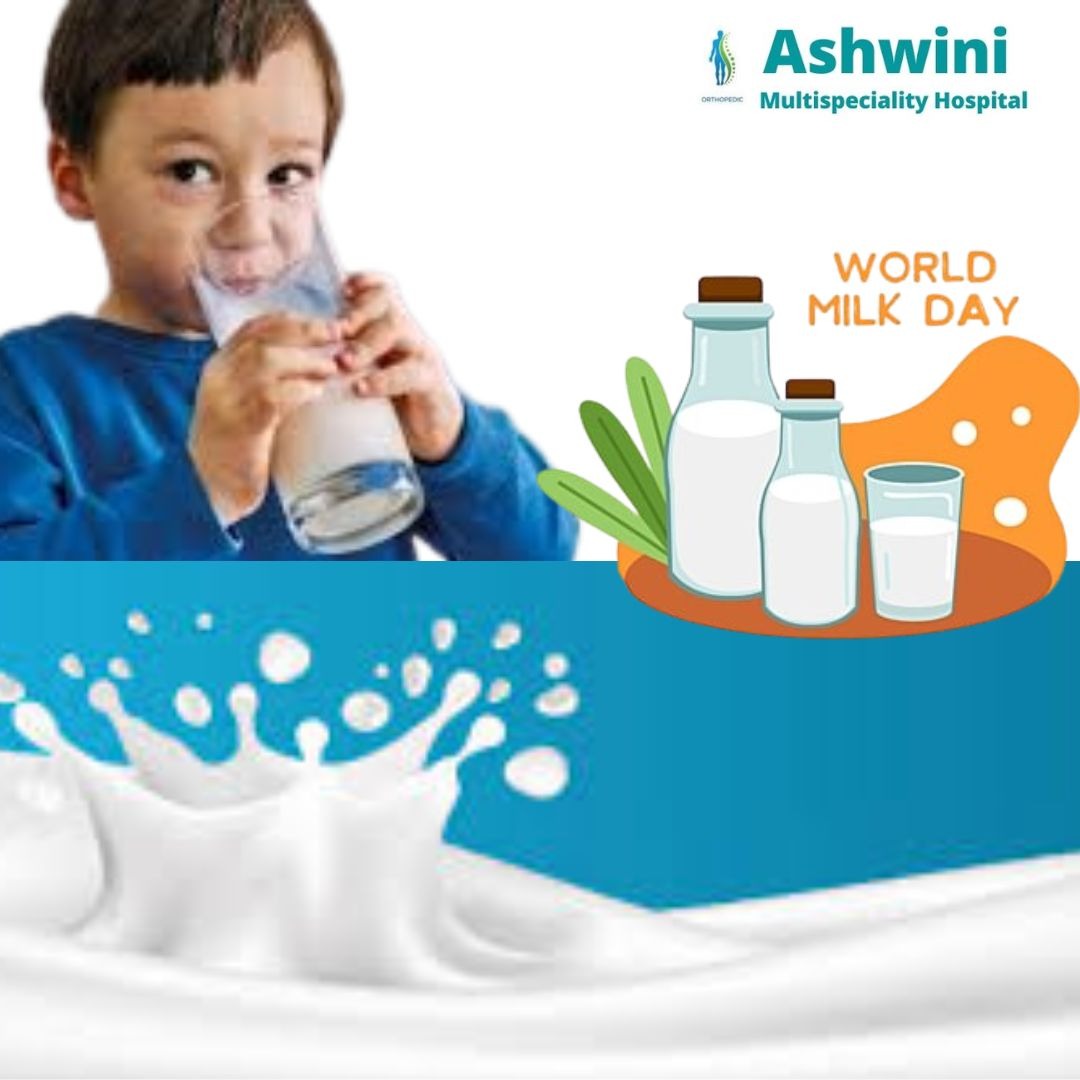+918048040021

This is your website preview.
Currently it only shows your basic business info. Start adding relevant business details such as description, images and products or services to gain your customers attention by using Boost 360 android app / iOS App / web portal.
'Build a strong skeletal system with dairy – To...

'Build a strong skeletal system with dairy – Today's nutrition, tomorrow's protection!' Milk Day and the Importance of Milk and Milk Products in Orthopedics World Milk Day, celebrated annually on June 1st, was established by the Food and Agriculture Organization (FAO) of the United Nations to recognize the importance of milk as a global food. In orthopedics, the relevance of this day goes beyond mere celebration—it’s an opportunity to highlight the critical role milk and its derivatives play in maintaining bone health, preventing musculoskeletal disorders, and supporting overall orthopedic wellbeing. The Orthopedic Significance of Milk Milk is a powerhouse of nutrients that are essential for the development and maintenance of the skeletal system. From childhood to old age, dairy products provide the foundational building blocks for healthy bones. Calcium – The Bone Mineral Calcium is the most abundant mineral in the human body, with about 99% stored in bones and teeth. It is crucial for: Bone mineralization Osteoblast and osteoclast function Prevention of osteoporosis and fractures An adequate intake of calcium, especially from bioavailable sources like milk, is essential for peak bone mass development and maintenance throughout life. Vitamin D – The Calcium Regulator Milk fortified with vitamin D helps enhance calcium absorption. Vitamin D deficiency is linked to: Rickets in children Osteomalacia in adults Increased risk of fractures Orthopedic recommendations often include vitamin D-rich dairy or supplements as part of treatment and prevention protocols. Protein – For Bone and Muscle Integrity Milk is a high-quality source of complete protein, which supports: Muscle mass maintenance Bone matrix synthesis Recovery after orthopedic surgery or injury Adequate protein intake is particularly important in the elderly to prevent sarcopenia and reduce fall risk. Other Nutrients Milk and dairy products also provide: Phosphorus – works with calcium to build strong bones Magnesium – involved in bone structure and vitamin D metabolism Potassium and Zinc – contribute to bone metabolism and healing Role in Orthopedic Practice In orthopedic medicine, dietary counseling often includes recommendations for dairy intake, particularly for: Children and adolescents – for optimal bone growth Postmenopausal women – to mitigate rapid bone loss Elderly patients – to maintain bone density and prevent fractures Post-surgical patients – to aid recovery and rehabilitation Additionally, dairy-rich diets are integrated into treatment plans for patients with: Osteoporosis Fractures Joint replacements Spinal conditions Conclusion On this World Milk Day, the orthopedic community recognizes the indispensable role of milk and dairy products in promoting bone health and preventing musculoskeletal disorders. Encouraging adequate and regular consumption of milk—alongside physical activity and sunlight exposure—can significantly reduce the burden of orthopedic diseases worldwide

